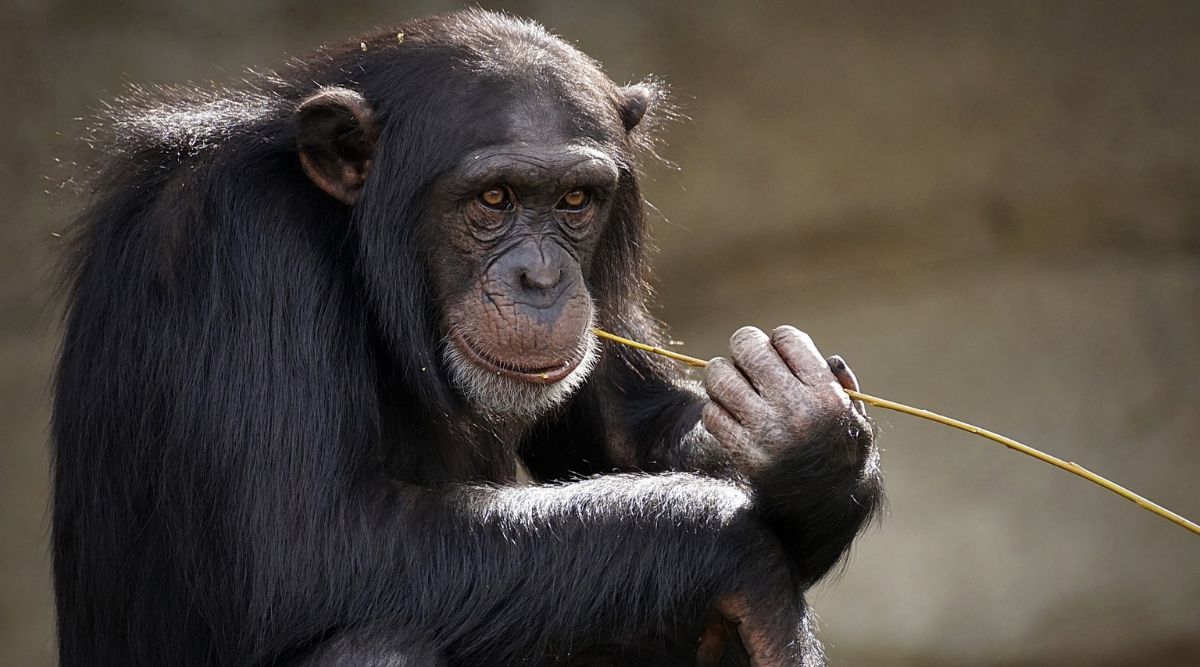What’s common between human teens and chimpanzees? Study sheds light on the root of risk-taking behaviours
Human teenagers and adolescent chimpanzees may have more in common than you think. A new study has thrown light on some intriguing similarities between the behaviours of human teens and adolescent chimpanzees.
 While adolescent chimpanzees are more prone to risk-taking compared to adult chimpanzees, they may actually be less impulsive than human teenagers. (Illustrative image) (Image credit: Pixabay)
While adolescent chimpanzees are more prone to risk-taking compared to adult chimpanzees, they may actually be less impulsive than human teenagers. (Illustrative image) (Image credit: Pixabay) Adolescent chimpanzees have some of the same risk-taking behaviours as human teens, according to a new study. Interestingly, the study also found that chimpanzees are actually less impulsive than their human counterparts.
“Adolescent chimpanzees are in some sense facing the same psychological tempest that human teens are. Our findings show that several key features of human adolescent psychology are also seen in our closest primate relatives,” Alexandra Rosati, PhD, lead researcher of the study published in the American Psychological Association’s (APA) Journal of Experimental Psychology: General. According to APA, this study can help answer an important question—why do adolescents take more risks? Is it because of their environment or are there any biological factors involved?
Chimpanzees can live up to around 40 years in captivity, and they experience adolescence between the ages of eight and 15. Just like humans, chimpanzees go through rapid changes during their adolescence, and they start forming new bonds with peers, show heightened aggression and compete for social status.
For the study, the researchers conducted two experiment involving food rewards with 40 wild-born chimpanzees at a sanctuary in the Republic of Congo. In the first test, adolescent and adult chimpanzees were given the option to choose between two containers in a gambling task. One of the containers always contained peanuts, which is a food that chimpanzees somewhat like.
But, the second container concealed an unknown food, which could either be their disliked food – a slice of cucumber, or their favourite food – a banana slice. This meant that chimpanzees could play it safe and get the peanuts or take a chance for a banana slice at the risk of ending up with a cucumber slice.
During the experiment, the researchers tracked the emotional reactions and vocalisations of the chimpanzees, including moans, whimpers, screams and when they either banged on the table or scratched themselves. The researchers also took saliva samples to test their hormone levels.
Through several rounds of the test, the researchers found that adolescent chimpanzees were more likely to go for the risky option compared to their adult peers. But, both adult and adolescent chimpanzees had similar negative reactions when they received a cucumber slice instead of a banana slice.
The second test was modelled on the famous “marshmallow test” conducted on human children. This examined delayed gratification, where the chimpanzee could either receive one banana slice immediately or wait for one minute to get three slices. During this experiment, the researchers found that both adolescent and adult chimpanzees chose the greater delayed reward at a similar rate. During previous experiments conducted with humans, scientists found out that human teens are more impulsive than adults and, therefore, more likely to take the immediate reward.
“Prior research indicates that chimpanzees are quite patient compared with other animals, and our study shows that their ability to delay gratification is already mature at a fairly young age, unlike in humans,” added Rosati.
However, while adolescent chimpanzees may have waited for a greater reward at a similar rate, they were not happy about it. They threw more tantrums during the one-minute delay than adult chimpanzees.







